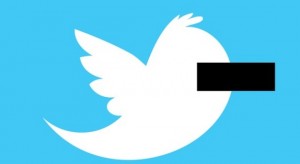
Blog
Mind What You Tweet
 At MeloTel, we are very aware that communication is key. Why else would be so big on offering products and services that provide some of the most fantastic ways to communicate in today’s modern age? As you may imagine, many of today’s modes of communications come via the internet.
At MeloTel, we are very aware that communication is key. Why else would be so big on offering products and services that provide some of the most fantastic ways to communicate in today’s modern age? As you may imagine, many of today’s modes of communications come via the internet.
Between our VoIP telephone, blogging and website hosting services to name just a few, our company is pretty much based on communicating by utilizing the world wide web. It’s no surprise then that social networking websites, such as Twitter, have become the global phenomenons that they have. These days, people love to speak their minds and let the rest of the world hear what they are thinking.
But late last week, a very interesting article was released revealing that the freedom of speech provided by Twitter may be in jeopardy. According to Gerry Shih of Reuters, Twitter announced that, in certain countries, particular restrictions on the content of tweets are going to be made. But don’t worry, it doesn’t appear as if Canada will be affected.
The report notes that Twitter is considering cooperating with countries like France and Germany who ban any type of pro-Nazi content. While this decision may be considered commendable, some Twitter users see it as the beginning of censorship on a social media network that was first created as a venue for free speech.
Shih writes that Twitter’s decision to begin censorship is a far departure from its policy from just a year ago. The idea to even consider such an initiative was sparked, however, when “anti-government protesters in Tunisia, Egypt and other Arab countries coordinated mass demonstrations through on the social network and, in the process, thrust Twitter’s disruptive potential into the global spotlight.”
At one point, Twitter blogged that they did not have a policy of removing tweets based on their content. Going forward however, in some cases, users of the micro blogging site will receive a message indicating that that their tweets are being blocked in the event they breache a particular code of ethics insisted upon in their respective countries.
Twitter is not alone in its quest to be globally acceptable. Shih points out that Google and Facebook have also had their fair share of altercations with foreign governments over freedom of speech and privacy issues. Of course, with each country having their own policies, there are evidently many different factors to consider when operating abroad.
